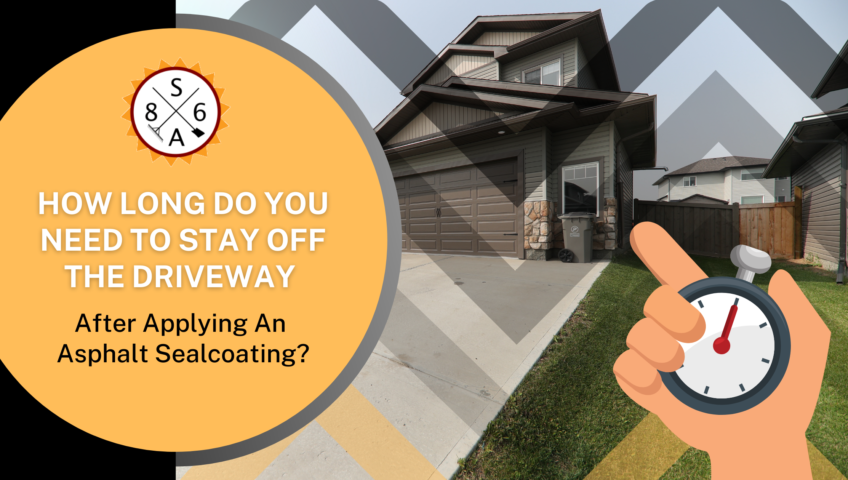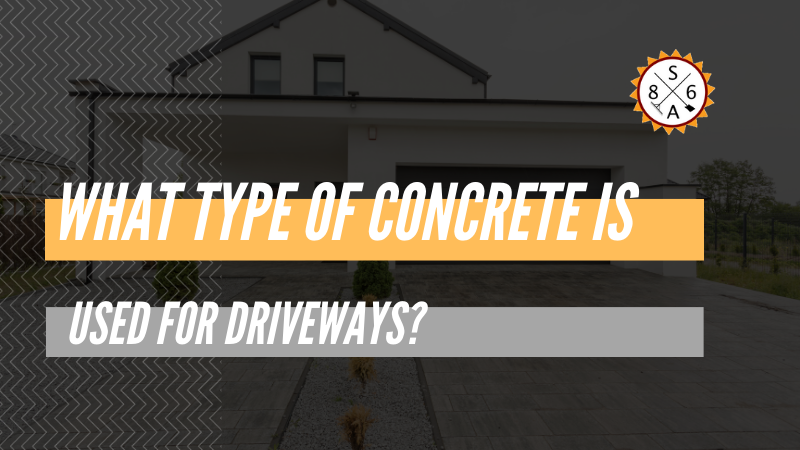
Keeping Up With Curb Appeal: The Top 5 Driveway Maintenance Tips You Need to Know
Whether you have bricks, pavers, concrete or an asphalt driveway, keeping it in good shape is the biggest factor in how long the surface will effectively serve you. Upkeep is also essential to ensuring that they maintain their appearance and add value to the home. Check out these top tips for maintaining the most common driveway materials.
1. Stay Diligent with Seal Coating
Driveway maintenance will be eased with routing seal coating of the installation’s surface. This is a good move for most kinds of solid-surface driveways, and is a must-do for concrete and asphalt materials that can stain and deteriorate with excessive sun and moisture exposure.
However, an asphalt driveway will need around 90 days to cure before being sealed. Most surfaces will need to be resealed about every two years to extend their lifespan and keep them looking attractive. This task is often best left to professionals, as it takes special tools and can be time-consuming for the typical homeowner.
2. Clean Up Stains Quickly
Routine seal coating can help prevent stains from oil, gas and other fluids that can penetrate bricks, pavers, concrete and asphalt driveways. Yet, it’s best to immediately clean up any such spills to keep stains at bay, which is likely to detract from the beauty of the home. Consider regular pressure washing to retain an ultra-clean look throughout the year.
3. Don’t Let Plants Take Over Driveway Surfaces
While green foliage is desirable in landscaping, plants and weeds can be a true menace to driveways. They can penetrate through to the surface by way of small cracks, which can actually widen them over time. Experts recommend filling in any cracks quickly and aggressively.
To prevent grass from taking over the edges of driveways, invest in some type of trim, edging or river rocks to place along the sides. In addition to keeping grass where it belongs, this addition can become a key visual element of your hardscaping design.
4. Perform a Driveway Inspection After Winter or Heavy Freezes
Should you reside in an area that sees freezing temperatures or seasonal snowfalls, the driveway will experience freeze-thaw cycles. Unfortunately, this can be a primary cause of driveway damage and is a particular issue with an asphalt driveway that can easily shift.
Be sure to do a visual inspection after deep freezes or heavy snow to check for cracks, potholes, or any signs of crumbling materials. Be prepared to take care of any necessary repairs right away. Ignoring deterioration will only allow the problem to worsen and spread to other areas of the driveway.
5. Invest in a Driveway Professional
While it’s possible to do a good portion of driveway maintenance and basic repairs as DIY projects, bigger jobs might be best left to professionals. In cases of tough stains or large installations, an experienced technician can make magic happen with greater ease and in less time. Having a local contractor in place ensures fast repairs and regularly scheduled seal coating and cleaning.
Don’t Underestimate the Talents of a Pro
As you can see, the driveway is a large part of a home’s exterior features, and will be seen by neighbors and passersby on a regular basis. Don’t be the neighbor who neglects their driveway and drives down the overall curb appeal on your street. Invest in driveway maintenance!
Whether you have bricks, pavers, concrete or an asphalt driveway, keeping it in good shape is the biggest factor in how long the surface will effectively serve you. Upkeep is also essential to ensuring that they maintain their appearance and add value to the home. Check out these top tips for maintaining the most common driveway materials.
1. Stay Diligent with Seal Coating
Driveway maintenance will be eased with routing seal coating of the installation’s surface. This is a good move for most kinds of solid-surface driveways, and is a must-do for concrete and asphalt materials that can stain and deteriorate with excessive sun and moisture exposure.
However, an asphalt driveway will need around 90 days to cure before being sealed. Most surfaces will need to be resealed about every two years to extend their lifespan and keep them looking attractive. This task is often best left to professionals, as it takes special tools and can be time-consuming for the typical homeowner.
2. Clean Up Stains Quickly
Routine seal coating can help prevent stains from oil, gas and other fluids that can penetrate bricks, pavers, concrete and asphalt driveways. Yet, it’s best to immediately clean up any such spills to keep stains at bay, which is likely to detract from the beauty of the home. Consider regular pressure washing to retain an ultra-clean look throughout the year.
3. Don’t Let Plants Take Over Driveway Surfaces
While green foliage is desirable in landscaping, plants and weeds can be a true menace to driveways. They can penetrate through to the surface by way of small cracks, which can actually widen them over time. Experts recommend filling in any cracks quickly and aggressively.
To prevent grass from taking over the edges of driveways, invest in some type of trim, edging or river rocks to place along the sides. In addition to keeping grass where it belongs, this addition can become a key visual element of your hardscaping design.
4. Perform a Driveway Inspection After Winter or Heavy Freezes
Should you reside in an area that sees freezing temperatures or seasonal snowfalls, the driveway will experience freeze-thaw cycles. Unfortunately, this can be a primary cause of driveway damage and is a particular issue with an asphalt driveway that can easily shift.
Be sure to do a visual inspection after deep freezes or heavy snow to check for cracks, potholes, or any signs of crumbling materials. Be prepared to take care of any necessary repairs right away. Ignoring deterioration will only allow the problem to worsen and spread to other areas of the driveway.
5. Invest in a Driveway Professional
While it’s possible to do a good portion of driveway maintenance and basic repairs as DIY projects, bigger jobs might be best left to professionals. In cases of tough stains or large installations, an experienced technician can make magic happen with greater ease and in less time. Having a local contractor in place ensures fast repairs and regularly scheduled seal coating and cleaning.
Don’t Underestimate the Talents of a Pro
As you can see, the driveway is a large part of a home’s exterior features, and will be seen by neighbors and passersby on a regular basis. Don’t be the neighbor who neglects their driveway and drives down the overall curb appeal on your street. Invest in driveway maintenance!




